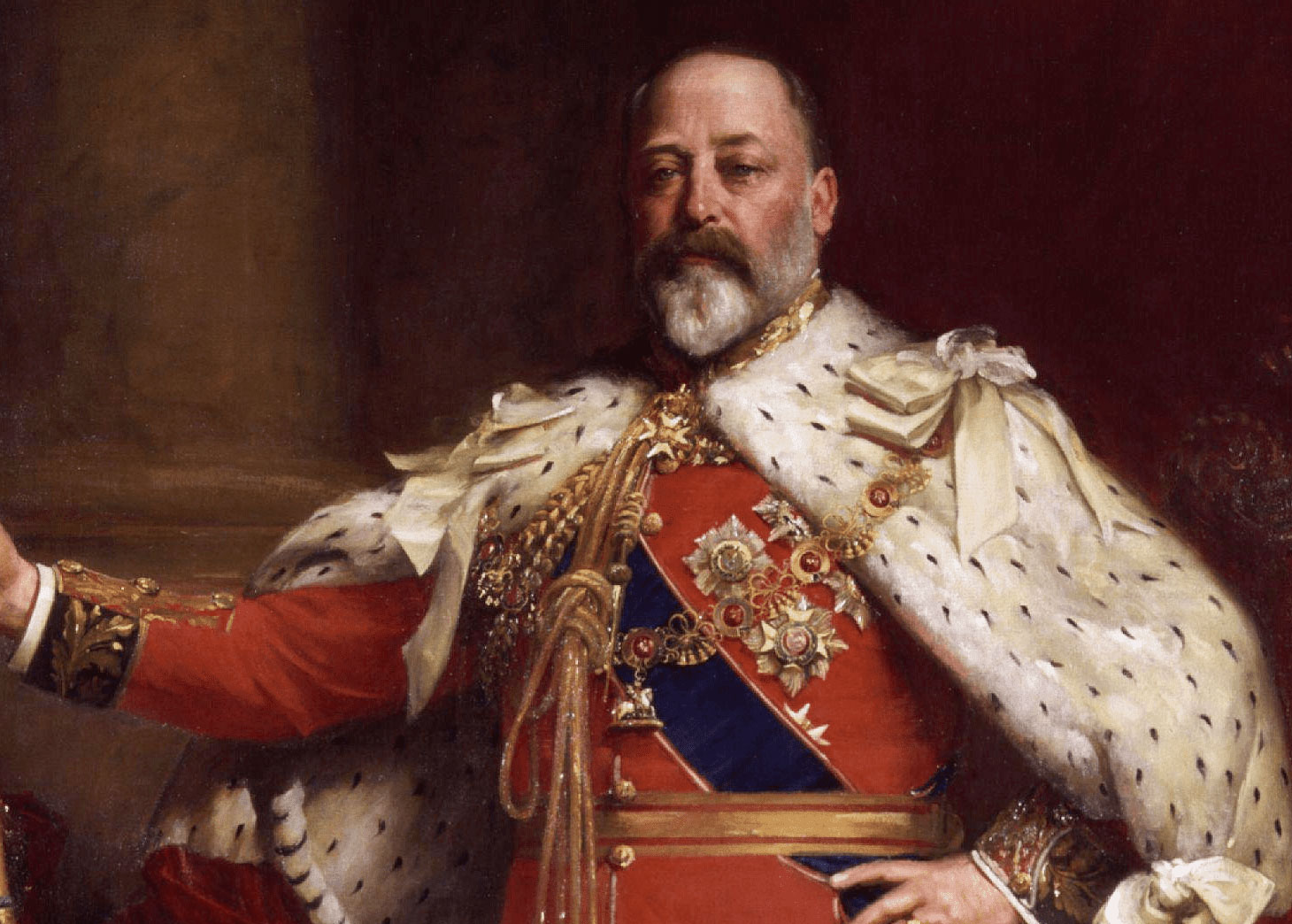
Edward VII was King of the United Kingdom of Great Britain and Ireland and the British Dominions, and Emperor of India for just over nine years, and in that time, he proved to be a popular and cordial king. But Edward was not always in favour, particularly with his parents.
In the third blog in our “House of Windsor” series, we take a look at the life of Queen Victoria’s eldest son, Edward VII.
Early Life
Prince Albert and Queen Victoria’s second child, Albert Edward was born on November 9th, 1841. He was christened at St. George’s Chapel, Windsor Castle on 25th January 1842. He was popularly known by his nickname “Bertie”.
Albert Edward was not as proficient as his siblings with his early schooling, and he was constantly compared to them by his mother. He was separated from the other children at the age of 11, sited as a bad influence, and was given a tough programme of study, to prepare him to be a king.
He did not excel as a student, but did attend the universities of both Oxford and Cambridge and spent a short time in the army, where he rose to the rank of Lieutenant Colonel.
Marriage, Children, and Tragedy
Prince Edward married Princess Alexandra of Denmark on March 10th, 1863. It was a marriage that was arranged by Edward’s parents Victoria and Albert, and the couple had six children; five of whom survived to adulthood.
During their engagement, Edward had a love affair with actress Nellie Clifden. Word of the affair reached Edwards parents, and his father, Prince Albert, visited Edward to reprimand him. The affair came to an end, however a fortnight later, Prince Albert fell ill and died of typhoid fever on 14th December 1861.
Queen Victoria fell in to a deep depression and partially blamed her son for her beloved Albert’s death, and was quoted as saying at the time that Albert had been “killed by that dreadful business”.
Stepping Up
Although Edward was given no responsibilities in political matters, with his mother’s withdrawal from public life through grief, Edward began to represent the Queen at official events. He even took his seat in the House of Lords, as Duke of Cornwall, but had no administrative duties.
Edward spent most of his time on the London society scene; drinking, eating, gambling, and garnishing a reputation as a playboy.
The New King
When Edward took the throne in August 1902, he had been next in line to the throne for 59 years, making him, at the time, the longest heir apparent in British history. This mark has now been surpassed by Prince Charles.
His enthusiasm for the role made him a popular king, as he brought lustre and sparkle back to the monarchy, following the years of reclusiveness by his mother.
He was fluent in both French and German, and would meet with major heads of state across Europe, helping to establish the Triple Entente between Britain, France and Russia, which played an important role in World War One. He also pushed for reform in the military, wanting to bring in an army medical service.
Edward and Windsor
Following the death of Queen Victoria, Windsor Castle underwent major renovations. The room that Victoria had used as a shrine to her late husband, Prince Albert, was cleared and Edward brought in elegant furnishings.
Edward also oversaw more modern utilities installed within the castle, with electricity installed in every room, central heating throughout, and the installation of telephone lines to make communications easier.
Death of a King
On May 6th 1910, Edward suffered a number of heart attacks and died. He was buried at Windsor Castle on 20th May 1910 and his funeral was attended, at that time, by the largest gathering of European royalty ever, with representatives from over 70 states present.
Edward VII will be remembered for the criticism by others of his self-indulgent lifestyle, but also for how much energy and diplomatic skill he brought back to the monarchy.
A threepence coin from the reign of Edward VII can be found in our “Monarchs of the House of Windsor Threepence Set”, which you can view HERE.
